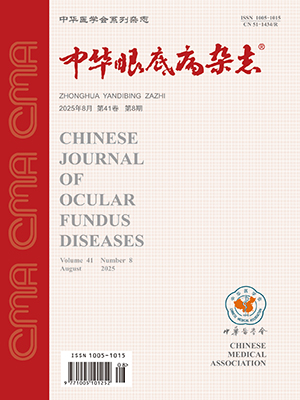Objective To study hyperthermia induced apoptosis and the effect of aspirin on hyperthermia induced apoptosis in retinoblastoma cells. Methods Retinoblastoma cells (Y79) were divided into two groups:hyperthermia groups,hyperthermia+aspirin (0.18~18 mu;g/ml) groups.Heat shock condition:44℃,heat shock time:10,20,30, and 40 minutes respectively.The following events were studied after heat shock by using FAC Scan: ①cell apoptosis; ②heat shock protein 70 (HSP70) expression;③bcl-2 expression. Results Apoptosis was induced by the treatment of hyperthermia (44℃) in Y79 cells in a heat dose dependent fashion.Longer time heating (44℃,40 minutes) induced necrosis rather than apoptosis.Aspirin could rescue Y79 cells from hyperthermia induced apoptosis in a dose dependent manner.HSP70 was induced in Y79 cells after heat shock,it was further enhanced by the treatment of aspirin(>1.8 mu;g/ml).Heat shock itself showed no effect on bcl-2 expression in Y79 cells,aspirin,on the other hand,could enhance bcl-2 expression in a modest level in heat treated Y79 cells. Conclusions Hyperthermia may induce apoptosis in Y79 cells which can be protected by use of aspirin.The enhancement of HSP70 and bcl-2 expression in Y79 cells by the treatment of aspirin in heating condition may be responsible for the protective function. (Chin J Ocul Fundus Dis, 1999, 15: 143-145)
Citation: XU Heping,WANG Chengye,LIU Shuangzhen. Hyperthermia induced apoptosis and the protective effect of aspirin in retinoblastoma. Chinese Journal of Ocular Fundus Diseases, 1999, 15(3): 143-145. doi: Copy
Copyright © the editorial department of Chinese Journal of Ocular Fundus Diseases of West China Medical Publisher. All rights reserved




